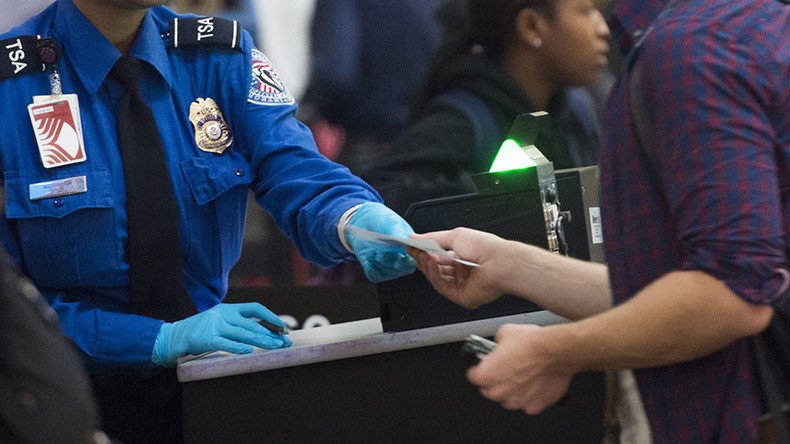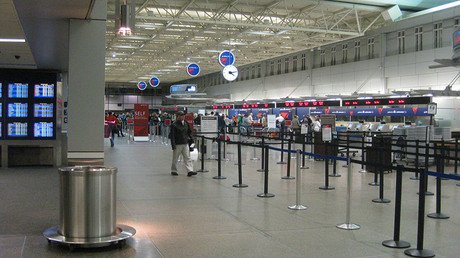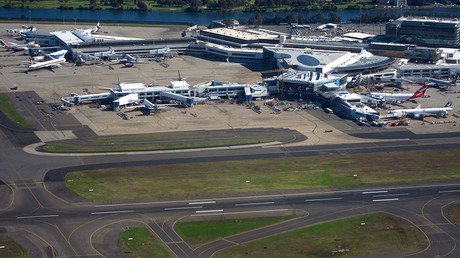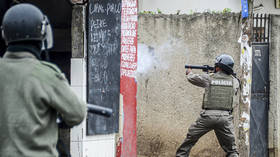DHS security report gravely worried that would-be terrorists could be among US airport insiders

A fresh report from the Department of Homeland Security (DHS) voices concern that lone-wolf attacks could be carried out at US airports by individuals with access to secure areas, such as employees, who currently number around 900,000 people.
The report warns that there are currently no security mechanisms in place to prevent these kinds of attacks. Weak screening procedures contribute to these worries, as only three airports across the country – Miami and Orlando in Florida, and Atlanta International in Georgia – carry out a 100-percent screenings of their employees and their belongings.
Other airports only carry out random screenings.
Compounding this fear, the DHS has intercepted numerous communications between would-be attackers and found many that discussed a whole plethora of ways to cause serious damage.
“Recent insider threat examples discussed in this report include an attempt to detonate a bomb at an airport, gun and drug smuggling, an expressed willingness to smuggle explosives as well as employees who became involved in terrorist activities overseas,” the DHS report says.
It also indicates that some airport employees go on to join terrorist groups. Most famously, in 2008, an airport cart driver with Minneapolis St. Paul became the first American suicide bomber to join up with al-Shabaab on their home turf in Somalia.
Currently, most security checks are random screenings, which intelligence operatives and security experts say are still useful, according to the report.
The dilemma is who should be in charge of airport security. On the one hand, local authorities know their facilities best, and security could easily be left to their discretion. However, the report points out that “recent and ongoing challenges necessitate a holistic and comprehensive assessment of America’s airport security posture.”
Since 9/11, many have been advocating the creation of a comprehensive system. According to the Government Accountability Office (GAO), TSA staff have always been acutely aware of the threat of terrorism, but have treated it as “a known and acceptable risk,” the report says.
Ironically, it wasn’t terrorism that exposed gaps in the security checks. According to the DHS, in 2007, two employees were caught trying to smuggle 14 kilograms of marijuana onto a Delta Air Lines flight from Orlando, Florida to San Juan, Puerto Rico, which led Orlando authorities to set up 100 percent screening.
However, security procedures at all US airports weren’t tightened until April of 2015, when Homeland Security Secretary Jeh Johnson ordered the change amid a scandal over a Delta Air Lines employee who was discovered to have smuggled a total of 153 firearms, including AK-47 assault weapons, onto 17 Delta flights between Atlanta and New York City.
Later that same year in June, a report “found that 73 aviation workers who held sensitive jobs within US airports were found to have possible ties to terrorism, which their background checks did not reveal.”
According to the DHS report, increasing random screenings and background checks for all workers will not address larger problems and the situation is not likely to improve until several changes are made.
It recommends “airport operators and air carriers should work to better educate aviation workers on their role in mitigating insider threats and securing access to sensitive areas of airports” and says the TSA “should reassess credentialing practices to ensure that individuals with access to secure and sterile areas of airports are held to stringent standards and are regularly reassessed for risk to aviation security.”
The report also advocates adopting more technological approaches to security, while gradually reducing the “number of employee access points to an operational minimum.”
The agency also recommends increasing “covert testing of playbook operations at airports across the United States, in order to measure current levels of security effectiveness and provide recommendations to airports and air carriers on how security can be improved.”
Lastly, the DHS offers to take the interagency lead on efforts to combat these insider threats.
A subsequent statement from the TSA acknowledged that the agency had taken note of the report and will work on implementing its recommendations.
The DHS report comes as chaos has engulfed the US immigration system with the limits set on the citizens of seven Muslim-majority countries listed in President Donald Trump’s executive order. A circuit court is to decide on Tuesday whether cancelling the order could threaten national security. The Department of Justice is firmly on Trump’s side, and is expected to argue that that a federal judge’s injunction blocking the restrictions last week was too broad and unjustified.














